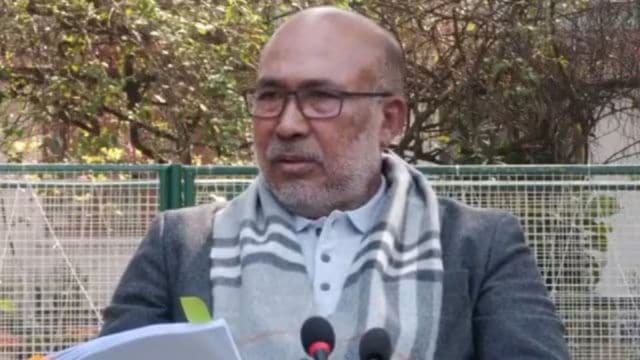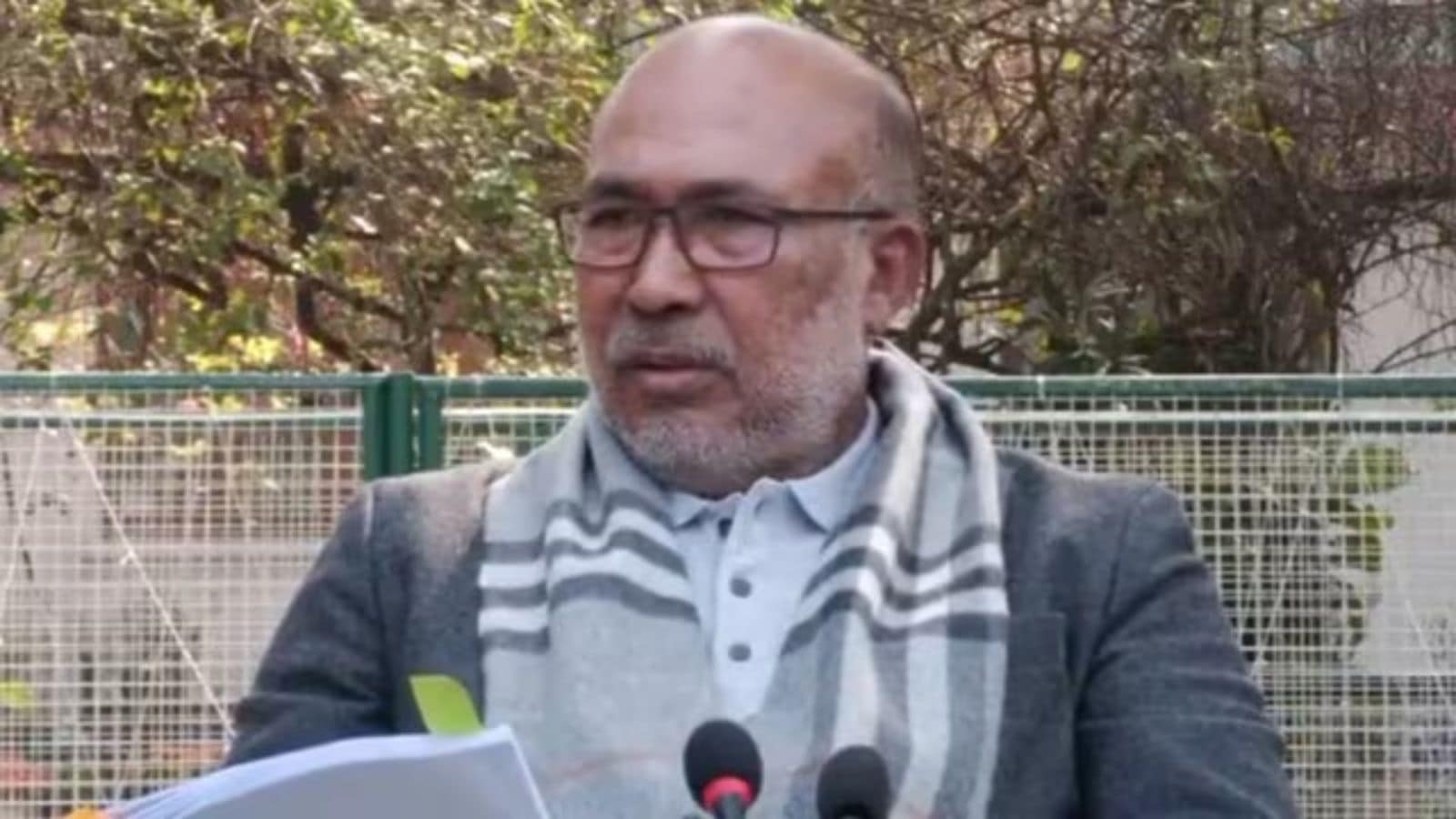

G Amarjit Sharma
Jan 7, 2025 16:30 IST First published on: Jan 7, 2025 at 16:17 IST
On December 31, the Manipur Chief Minister expressed “regret” and “apologised” to all “victims” of the violence that has seized life in the state since May 3, 2023. Amid intractable violence, he appealed to all communities to “forgive and forget” past mistakes and start a new life and make way for a peaceful and prosperous Manipur. One may ask how profound his apology is. After all, it is not merely a question of how deep one’s sense of guilt and awareness of mistakes are. It is also a question of how expansive the moral imagination is to overcome the violence and usher in a new political order. Does the apology invoke a philosophy of empathy and dependability towards each other, that all parties have suffered and that endemic violence cannot bring an end to that suffering?
A reasonable apology was also anticipated from the Prime Minister of India for not visiting the state and for avoiding exercising the duties of the state effectively. Law and order matters have been managed under the Unified Command formed on May 31, 2023, and headed by a retired IPS officer. Unified Command oversees operations by the Army, the Central Reserve Police Force (CRPF), Assam Rifles, and Border Security Force stationed in the state. By January 2024, the Chief Minister of Manipur informed in an all-party meeting that the Union Government of India had invoked Article 355 in the state. It allows the Centre to take charge of the law and order enforcement practically without dismissing the state government.
But in the aftermath of the horrific killings of women and children last November in the Jiribam district, matters of law enforcement appear to have fallen back under the state government. The Ministry of Home Affairs stated in December, in response to a Public Interest Litigation (PIL) filed in the Manipur High Court, that the Jiribam killings are matters of “maintenance of law and order, which fall under the state government”. However, matters of Manipur violence are still under central agencies like the National Investigative Agency (NIA). NIA considers the cases concerning external linkages of armed groups involved in the violence and “war against India” under its jurisdiction. The situation indicates an extraordinary coexistence of nation-state sovereignty and governmental management of inter-community power relationships. Perhaps, it also explains the reason for not just the CM’s delayed apology but also the lack of a reflective political imagination for a future Manipur.
To reconcile the violence in Manipur, one must understand the complexity of the conflict that has gripped the state. One side of it is concerned solely with wars of ethnic narratives and politics of truth — whose end result more often than not is brutal violence. Another side involves a moral capacity to absorb these multiple narratives and create a new, dependable, and empathetic political order. One must take the second side if there is to be reconciliation. Reconciliation is possible only when all parties and stakeholders realise that conflict does not lead anywhere but to the loss of more lives. The state leadership must show creativity to approach the complexity of violence with the simplicity of truth — that violence is not the path to political reform. The creative approach demands an alternative understanding of militancy, crime, and justice in Manipur violence. It is not just about steps and strategies. It is about creating an atmosphere where these questions, issues and legitimate adversarial positions can be discussed with a sense of relatability among communities.
Although militancy is considered either externally-induced or related to drug money and narcotics, there is a tendency to communalise these acts. But militancy and ethnic violence have emanated from both sides of the conflict in the last 20 months. The state approach to militancy during communal violence lacks the consideration that all communities in the state, irrespective of ethnic backgrounds, share the brunt of this.
The CM has tendered an apology to the victims of the violence. But the process of reconciliation cannot focus only on the victim. Victimhood suffers from problems of relativity. It ethnicises and privileges one’s condition of pain and loss over others. It does not enable thinking of injury, loss, and suffering due to violence as distributive, irrespective of communities. Only with this ethical responsibility of relatedness can reconciliation be initiated.
most read
Along with victims, the philosophy of reconciliation must include perpetrators of violence too. The emphasis should be on survivor justice so that both victims and perpetrators feel motivated to stop the transformation of loss and suffering into monstrous, violent action. This will require the involvement of community leaders and organisations.
However, the institutional apology and offer of reconciliation seem to have come in an atmosphere of coercion. The two cannot go together. In the aftermath of the Jiribam killings, the state government employed coercive measures to deal with public anger. Besides attempts to silence criticism, the counter politics of ruling-party supporters were unleashed against the legitimate question of the masses about the failure of leadership. Reconciliation cannot operate in an atmosphere of coercion, repression of criticism, and divisive politics. The road to it must be cleared, deepened, and made inclusive. It is a long process.
The writer teaches political studies at the Special Centre for the Study of North East India, Jawaharlal Nehru University, New Delhi
Discover the Benefits of Our Subscription!
Stay informed with access to our award-winning journalism.
Avoid misinformation with trusted, accurate reporting.
Make smarter decisions with insights that matter.
Choose your subscription package


